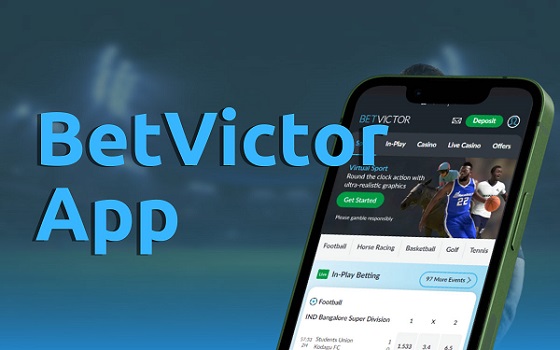Also Interesting
Cryptocurrency and Online Casinos and What’s Next for Bitcoin and Ethereum Payments: Overview From Specialists at Rabona Betting

Cryptocurrencies are becoming more common in everyday transactions. You can purchase things via digital currency on different sites and the system automatically exchanges it into the fiat currency like CAD.
This payment method is also popular at online casinos because of fast transactions, specifically, withdrawals. You can deposit money and place a bet on Napoli FC Rabona Canada, play various games, and then withdraw winnings the way you deposited funds. This article explores this interesting opportunity and what may come in the future.
Why Casinos Use Cryptocurrency
Online casinos like Rabona betting use cryptocurrency because it transfers funds faster than traditional payment systems. Bitcoin and Ethereum transactions don’t rely on banks, so transfers complete within minutes.
Players from countries with financial regulations use crypto wallets to send or receive funds without card rejections or blocked transfers. Casinos also cut costs since they don’t pay high processing fees to banks or card companies.
Crypto systems record each transaction on a blockchain ledger, so every move of money is visible and cannot be changed. That reduces disputes over withdrawals and deposits since each transaction’s info is available in public records.
Casinos that accept Bitcoin or Ethereum attract a wide range of players who prefer anonymity. Traditional payment systems require full identity checks, while crypto transfers use wallet addresses.
Players still need to pass KYC checks under legal standards, but crypto wallets give more privacy since they don’t require your bank data.
How Bitcoin and Ethereum Shape Casino Payments
Bitcoin is the top choice for online gamblers because most payment systems already integrate it easily. It allows deposits and withdrawals in similar amounts to bank transfers.
Sites like Rabona betting often provide it for high-volume transactions because cryptocurrency networks handle large sums safely and quickly. Digital currencies stands out because they allow smart contracts.
These contracts handle payouts automatically when a condition is met. For example, a casino game that uses an Ethereum contract can send a payout as soon as a winning combination appears, without manual approval.
Players deposit money and the casino automatically exchanges it to CAD. Thus, users can play bets in a currency they’re used to, and withdraw via the same crypto system that converts CAD to BTC, ETH, etc.
What’s Next for Bitcoin and Ethereum in Gambling
Future development aims to increase transaction speed and reduce fees. Bitcoin developers work on the Lightning Network, which processes microtransactions instantly through off-chain channels. That system suits online casinos since it handles many small bets quickly.
Ethereum’s developers improve scalability through updates that raise network capacity and lower gas costs. That’s one of the reasons why Ethereum switched from PoW to PoS.
Conclusion
Casinos like Rabona betting and others keep expanding payments to include more currencies like Solana, Cardano, Avalanche, or stablecoins like USDC, EURC, EURQ, and more. Most cryptocurrencies process transactions faster and provide some sort of anonymity, so players will continue using them at online casinos.
Also Interesting
Alberta takes a step towards iGaming legislation

Alberta is moving closer to joining the growing list of Canadian provinces embracing regulated online gambling. The province’s proposed Bill 48, known as the Alberta iGaming Act, has cleared its second reading in the Legislative Assembly, marking a significant milestone toward establishing a competitive, open iGaming market. For many observers, this signals that Alberta could soon follow in Ontario’s footsteps, paving the way for private operators to enter what’s currently a government-run landscape.
At the heart of the bill is the creation of the Alberta iGaming Corporation, an independent body that would oversee licensing, compliance, and responsible gaming initiatives. Its responsibilities would include setting technical standards, enforcing fair play through random number generator integrity checks, and ensuring operators meet anti-money laundering requirements. A board of seven directors, appointed by the Minister of Service Alberta and Red Tape Reduction, would guide the new regulator’s operations.
Support for the bill appears solid, with the United Conservative Party holding a majority in the legislature. The expectation is that once it passes through committee review and any amendments are finalized, the province will begin building the framework for its digital gaming market. Industry watchers are already predicting that the new system could roll out by mid-2026, with the first operators going live soon after.
The model Alberta is chasing looks a lot like Ontario’s, which launched its open iGaming market in 2022 and now records over a billion dollars in monthly wagers. Alberta’s approach aims to balance opportunity and oversight, letting gaming operators compete alongside the government’s Play Alberta platform. This move is expected to boost competition, variety, and consumer protection all at once, and could significantly contribute to the local economy. It just makes sense that any Canadian online casino targeting this North American market would welcome the news, as Alberta represents a massive untapped audience eager for safe and modern gaming options.
Consumer safeguards are a core part of Bill 48’s design. A centralized self-exclusion system would allow players to opt out of all licensed platforms through a single registration. There will also be mandatory age verification, betting limits, and spending alerts to promote responsible play. Revenues from the new market are expected to fund social programs and gambling treatment initiatives, ensuring that the benefits extend beyond the casino floor.
A big part of the motivation behind Bill 48 is to steer players away from unregulated offshore sites. Right now, thousands of Albertans gamble online through platforms that operate outside Canadian jurisdiction, offering little in the way of player protection or accountability. A legal, competitive market within Alberta would not only keep those dollars at home but also attract marketing investment and innovation from major operators.
If all goes as planned, Alberta’s iGaming Corporation could begin issuing licenses by next year, setting the stage for a 2026 launch. The province’s measured approach shows a clear preference for getting the framework right rather than rushing it through. For local players and the gaming industry alike, Alberta’s next chapter in digital entertainment is starting to take shape, and it looks like a winning hand.
Also Interesting
How Cross-Platform Gaming Brings Everyone Together

Anyone who’s spent time in online lobbies knows the pain of being separated from friends by hardware choices. But lately, the walls between platforms are coming down, and it’s changing the way people play, connect, and even think about their favorite games. Let’s take a closer look at how cross-platform gaming is reshaping the community and what it means for players everywhere.
The Importance of Cross-Platform Play
For years, gamers have been divided by the devices they own. Whether it was a matter of budget, brand loyalty, or just what was available, the result was always the same: friends on different systems couldn’t play together. Cross-platform gaming is turning that on its head. Now, it’s possible for someone on a console to team up with friends on a computer or even a mobile device, all in the same match. This shift isn’t just about convenience—it’s about building bigger, more inclusive communities where everyone gets a seat at the table, regardless of their setup.
Technical Challenges for Developers
Making cross-platform play work isn’t as simple as flipping a switch. Developers have to juggle different operating systems, hardware specs, and even controller layouts. There’s also the challenge of making sure everyone has a fair experience, whether they’re using a mouse and keyboard or a controller. Interestingly, these challenges aren’t unique to traditional games. Even platforms like online casino services have had to rethink their infrastructure to allow players to access games from multiple devices, ensuring a seamless experience no matter where they log in. This broader trend highlights just how much the industry is evolving to put player choice first.
Community Growth and Player Experience
One of the most exciting things about cross-platform gaming is the way it’s expanding communities. No longer limited by hardware, players can find new friends, join larger groups, and participate in events that would have been impossible just a few years ago. It’s also changing the way people approach competitive play, with more diverse matchups and a wider range of strategies. For those interested in the bigger picture, the discussions and reports from the Game Developers Conference often provide valuable perspectives on how these changes are influencing game design and the player experience as a whole.
A Connected Future for Gaming
Cross-platform gaming is still a work in progress, with plenty of technical and social hurdles left to clear. But the direction is clear: the future of online play is more open, more connected, and more focused on what brings people together rather than what keeps them apart. As these trends continue, it’s worth reflecting on how far the community has come—and how much more fun gaming can be when everyone gets to join in, no matter what device they’re using.
-

 armed forces2 days ago
armed forces2 days agoIt’s time for Canada to remember, the heroes of Kapyong
-

 Digital ID2 days ago
Digital ID2 days agoCanada moves forward with digital identification for federal benefits seekers
-

 Daily Caller2 days ago
Daily Caller2 days agoUS Nuclear Bomber Fleet Shares Fence With Trailer Park Linked To Chinese Intel-Tied Fraudster
-

 Alberta2 days ago
Alberta2 days agoSchool defunding petition in Alberta is a warning to parents
-

 Daily Caller2 days ago
Daily Caller2 days agoLaura Ingraham Presses Trump On Allowing Flood Of Chinese Students Into US
-

 espionage2 days ago
espionage2 days agoChinese-Owned Trailer Park Beside U.S. Stealth Bomber Base Linked to Alleged Vancouver Repression Case
-

 Business2 days ago
Business2 days agoLiberals refuse to disclose the amount of taxpayer dollars headed to LGBT projects in foreign countries
-

 Crime1 day ago
Crime1 day agoCBSA Bust Uncovers Mexican Cartel Network in Montreal High-Rise, Moving Hundreds Across Canada-U.S. Border







